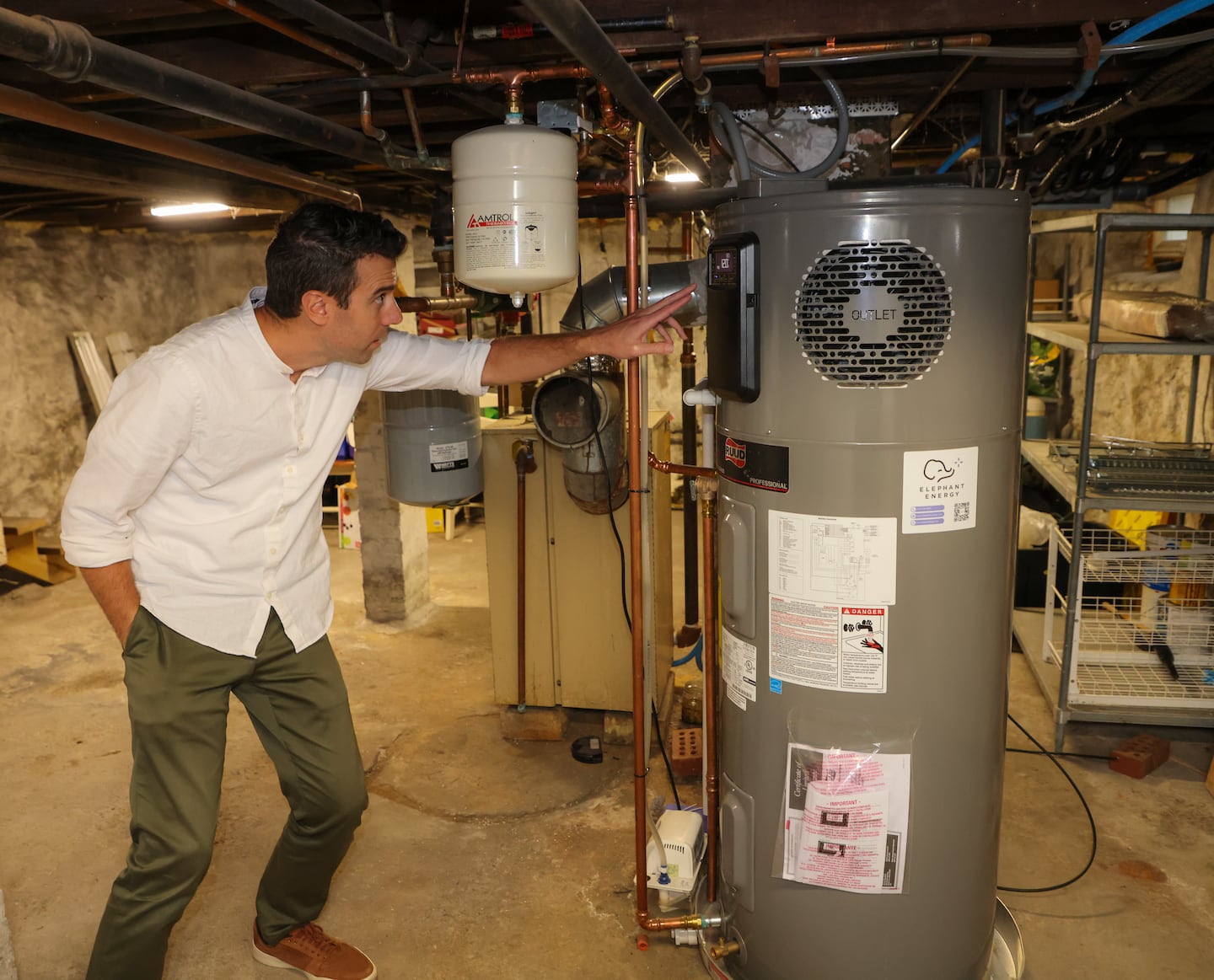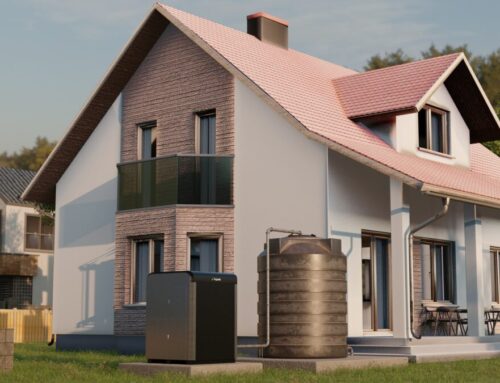‘Will it keep the house warm? What will it cost?’: How one family got their home off fossil fuels in a year
November 24, 2024
When Amelia Wesselink and Tim Maher purchased a 120-year-old, century style house in 2017 — a bit of a fixer-upper, Maher said — they had no idea that eight years later, they’d soon outfit it with energy-saving infrastructure that would both slash greenhouse gas emissions and save money on their energy bills.
The couple’s 1,800-square-foot, three-bedroom home in Roslindale is similar to many on the block: a living room filled with toys for their two elementary-aged children; an office for Wesselink, a Boston University epidemiologist; and two cars in the driveway so she can pick the kids up from school while Maher is coaching soccer practice at the Hyde Park high school where he also teaches math.
But when the oil tank started leaking last year, they saw an opportunity to make a change many Bostonians, and residents across Massachusetts, are still debating: They bought an air-source heat pump, a highly efficient system that uses outside air and refrigerant to warm or cool a home. That decision was the first of several the couple would make to pivot off fossil fuels and onto renewable energy, weighing affordability and comfort at every step.
“There was something satisfying about shutting off the gas and getting rid of the oil,” Maher said. “But a lot of it’s just been a necessity: What’s broken or not working right now?”

When Maher started exploring replacements for the leaky tank, he already had reservations about sticking with oil. “The pricing fluctuated a lot,” he said, noting that he’d routinely open the mailbox to find a $600 bill waiting for him. Maher had read about heat pumps online as a potential alternative, but every contractor he contacted told him it couldn’t be done.
“They were like, ‘You can’t do that in Boston. It’s too cold,’” he recalled. “I was pretty skeptical of that.”
Then the family got a message from startup Elephant Energy, whose cofounder went to high school with Wesselink. The Denver-based company, which specializes in transitioning homes off fossil fuels, was expanding to Massachusetts. The couple set up a Zoom meeting.
“They were like, ‘Well, we’ve been doing this in Denver for years … and no one’s been frozen out of their house.’ So that was pretty convincing,” Maher said. The company provided reams of information on the science behind heat pumps, but like many homeowners, Maher only had two questions: “Will it keep the house warm? And what will it cost?”
With the help of Elephant Energy staff, who guided him and his wife through both the financing and installation process, Maher replaced the oil tank with an air-source heat pump powered by electricity from the grid.
“Having someone who could do all the behind-the-scenes stuff was super helpful,” Wesselink said, “somebody who knew about all the rebates we could get, and could take care of that stuff for you.”
By taking advantage of the zero-interest loan for heat pumps alongside other financial incentives available through Mass Save, a program to help finance energy-efficiency renovations run by state utility companies, Maher said it ultimately only cost him slightly more than the $6,000 he would have paid for a new tank. (The program offers residents thousands of dollars in rebates and other incentives, paid for by an “energy efficiency” surcharge on utility bills statewide.)
The thermostat was replaced by an app on Maher’s phone that lets him customize the temperature in five different zones across the house. And the pump provides not only heat in the winter but air-conditioning in the summer, meaning the family also ditched their window units, to Wesselink’s delight.

“‘You’d have to turn up the volume on the TV when they were on because they’re so loud,” she recalled, to which Maher added: “That’s been the biggest comfort difference … having basically central A/C everywhere is awesome.”
Not long after the new HVAC system was installed in the house, the hot water heater broke. Just as before, the couple compared prices and considered pro/cons: Should they get a new gas heater, or opt for another heat pump instead? And again, with financial assistance from Mass Save, they decided renewable energy was the way to go.
By the time the family car, a 2004 Acura, broke down a few months later, the couple was already considering electric vehicles. After haggling with the retailer on rebates and payment plans, they settled on a 2024 Kia EV and bought a charger from Amazon for the driveway. Installing the charger meant updating the home’s electrical panels, but it was an investment the couple was happy to make.

A couple months ago, Maher realized the only gas appliance left in the house was the stove. After talking it over with Wesselink, they decided to complete their home’s transition off fossil fuels and buy an induction stove, which was also financed in large part through Mass Save rebates.
“You buy a $1,000 stove, they wrote me a check for $500 back, and that felt like a good deal,” Maher said. He added that while the stoves are still pretty rare among their friends in the area, the family is already loving the change. “You go to heat water for tea and by the time you get the teacup ready, the water’s [already] boiling,” he joked.
In addition to a more comfortable atmosphere inside the house, Maher said he was also surprised by the savings on his utility bill. Checking his bills over the summer, he noticed the house was using 10 percent less electricity each month than it did last year.
“All summer it was like that, which was kind of shocking because it was the first time with the car, and first time with the hot water and the air conditioning,” he said, adding that it “just shows you how much the wall [A/C] units were using up.”
Now that the house is fully off fossil fuels, Wesselink said the next step is looking into solar panels, though likely not for a few years. While the pair don’t particularly see themselves as clean energy evangelists, Wesselink and Maher said they appreciate the ability to do something good for the climate while improving the comfort of their home.
“If there is a home improvement we can make to reduce our carbon footprint, we’re going to do it,” she said. “It can be kind of overwhelming … but my advice would be: just do it. Don’t be afraid of this.”
Ivy Scott can be reached at ivy.scott@globe.com. Follow her @itsivyscott.
Search
RECENT PRESS RELEASES
Related Post




